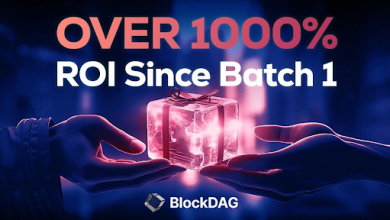The US Bitcoin ETF In South Korea's Elections

Major political parties compete for the support of cryptocurrency traders in the run-up to South Korea’s legislative election by promising contrasting policies on taxes and exchange-traded funds (ETFs) in the face of regulatory obstacles.
TakeAway Points:
- The legislative election in South Korea is centred on cryptocurrency issues, with parties vying for control over digital asset taxation and ETF rules.
- The Democratic Party, which is in opposition to President Yoon Suk Yeol’s People Power Party, promises to remove restrictions on exchange-traded funds (ETFs), which include US Bitcoin products.
- Concerns about investor protection and broader crypto rules are brought up by regulatory concerns and previous market events.
Parliamentary Election Spotlights Crypto Policies
South Korea’s upcoming parliamentary election is notable for the emphasis placed on crypto-related policies by major political parties. President Yoon Suk Yeol’s People Power Party has made a significant promise to delay the implementation of a digital-asset tax. This move is seen as an attempt to garner support from the burgeoning crypto investor community. Conversely, the opposition Democratic Party has pledged to remove restrictions on exchange-traded funds (ETFs), including those linked to US Bitcoin products.
This commitment signals a potential shift in regulatory stance towards embracing crypto-related financial instruments. The significance of these promises lies in the substantial presence of crypto traders in South Korea, where over 6 million individuals, constituting more than 10% of the population, actively engage in crypto trading. These initiatives’ appeal to the cryptocurrency community may impact the election’s outcome, demonstrating the growing importance of digital assets in South Korean politics.
ETF Disputation and Regulatory Challenges
The controversy surrounding ETFs directly investing in Bitcoin has sparked discussions and regulatory scrutiny in both the US and South Korea. While the US Securities and Exchange Commission (SEC) has given its approval for such ETFs, South Korea’s securities regulator has raised concerns about potential legal violations associated with brokering these products locally. This regulatory uncertainty has had a ripple effect on stock markets and prompted political parties to address the issue as part of their election agendas.
Amid the difficulties caused by unclear regulations, political parties have pledged to delay proposed taxes on cryptocurrency earnings. This highlights the critical role of regulatory decisions in shaping the landscape of the crypto market. South Koreans, known for their active participation in crypto trading, have displayed a preference for smaller cryptocurrencies, further complicating the regulatory landscape and underscoring the need for clarity and consistency in regulations.
Cryptocurrency Risks and the Law
Investors are exposed to considerable risks because of the speculative nature of the cryptocurrency industry, as demonstrated by previous events such as the 2022 collapse of the Luna and TerraUSD coins. The implosion of Do Kwon’s Luna and TerraUSD tokens resulted in losses exceeding $40 billion, serving as a stark reminder of the inherent risks associated with crypto investments. These events have underscored the importance of implementing robust investor protection measures and establishing a comprehensive regulatory framework.
Both major political parties in South Korea have proposed wider regulation plans aimed at safeguarding investors and promoting market stability. Recent crackdowns by South Korean financial regulators on virtual assets, including a more scrutinized approach to token listings on centralized exchanges (CEXs), highlight the need for seamless regulations to ensure the safety and integrity of the crypto market. Despite skepticism from US officials, South Korea and Asia are witnessing a growing acceptance of crypto, with expectations mounting for the eventual approval of spot-crypto ETFs.





